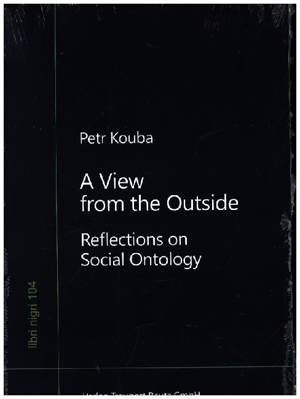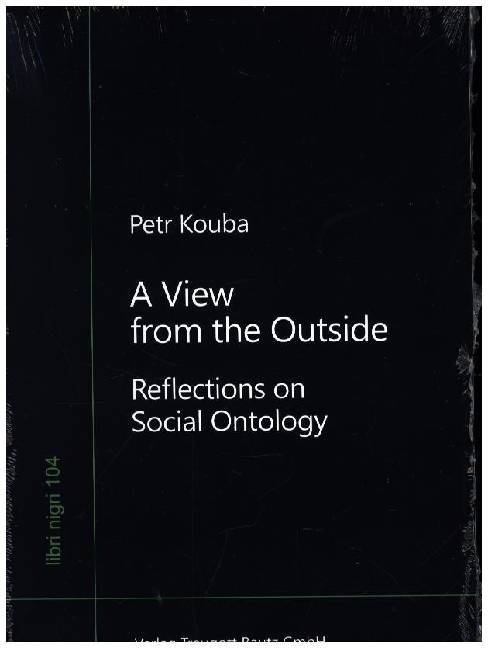
- Afhalen na 1 uur in een winkel met voorraad
- Gratis thuislevering in België vanaf € 30
- Ruim aanbod met 7 miljoen producten
- Afhalen na 1 uur in een winkel met voorraad
- Gratis thuislevering in België vanaf € 30
- Ruim aanbod met 7 miljoen producten
Zoeken
Omschrijving
What the studies collected in this book have in common is a belief that we cannot recognise ourselves from the inside by some form of social introspection. Rather, in order to realise who we are, we need to view ourselves from the outside. If there is a phenomenological approach to society, it involves an exocentric rather than endocentric view of ourselves. However, what makes such an exocentric view of ourselves possible is a construction of the outside that allows us to keep a distance from ourselves. The essays collected in this book attempt to demonstrate the various forms of the outside and to examine their efficiency: there are strangers, terrestrial or cosmic voyagers, there are women and other sexual minorities in a patriarchal society, there is boredom and silent insomnia that expel us from the world, there is sacrifice as the ultimate renunciation of life, there is love as capacity for nonviolence and self-sacrifice, and finally there is the event as an outside to all political projects.All these forms of the outside enable and fuel social criticism that uncovers phenomena that remain invisible under normal circumstances. It is a way of thinking about culture and society that highlights such themes as boundaries, cultural differences, and social changes, which can be constructive or destructive, liberating as well as oppressing.About the author: Petr Kouba is researcher at the Department of Contemporary Continental Philosophy of the Institute of Philosophy of the Academy of Sciences of the Czech Republic, and lecturer at the Faculty of Letters of Charles University. He has published Phenomenon of Mental Disorder (2006 in Czech, 2011 in German, 2015 in English), L'exode sans Moïse. L'émigration rom comme problème politique (2015 in Czech, 2020 in French), and Margins of Phenomenology (in English 2020). He also coedited Dynamic Structure: Language as Open System (2007 in English), Medicine in the context of Western thought (2008 in Czech),and Franz Kafka: Minority Report (2010 in English, 2011 in Czech).
Specificaties
Betrokkenen
- Auteur(s):
- Uitgeverij:
Inhoud
- Aantal bladzijden:
- 134
- Taal:
- Engels
- Reeks:
- Reeksnummer:
- nr. 104
Eigenschappen
- Productcode (EAN):
- 9783959486187
- Verschijningsdatum:
- 28/03/2025
- Uitvoering:
- Boek
- Afmetingen:
- 155 mm x 10 mm
- Gewicht:
- 212 g

Alleen bij Standaard Boekhandel
+ 35 punten op je klantenkaart van Standaard Boekhandel
Beoordelingen
We publiceren alleen reviews die voldoen aan de voorwaarden voor reviews. Bekijk onze voorwaarden voor reviews.











